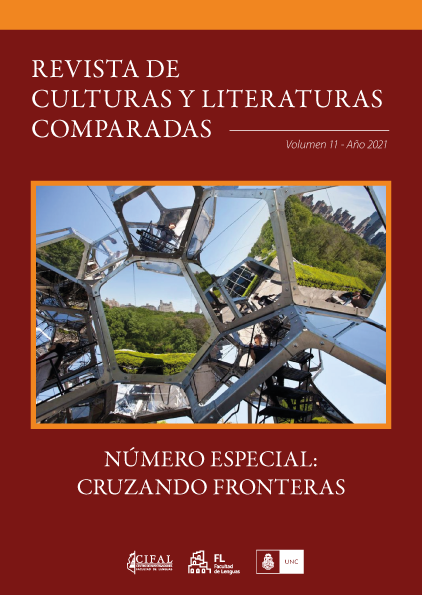De las biopolíticas a las necropolíticas en el contexto del poshumanismo y el posantropocentrismo en The Year of the Flood de Margaret Atwood y ¿Sueñan los androides con ovejas eléctricas? de Philip Dick
Keywords:
biopolitics, necropolitics, materialism, posthumanism, postanthropocentrismAbstract
Foucault’s biopolitics (Historia de la Sexualidad Vol. 1, 1976) can be found at the basis of uncountable socio-cultural and political analytical papers when concerned with the normativity of bodies, health and the social policies that regulate society. In the post-apocalyptic texts, The Year of the Flood, by Margaret Atwood, and Do Androids Dream of Electric Sheep?, by Philip Dick, where bodies’ materiality of the classical humanism has crossed unthinkable frontiers and has placed us not only within posthumanism but also in post- anthropocentrism, biopolitics have changed their object, their source and their regulation model. The norm and the biopolitical power devices based on biotechnology and robotics knowledge and within the reach of the large commercial corporations, which wage power and surveillance tools, do not construct disciplined bodies any longer but in an open and obscene way they dispose of indocile and useless bodies and have become necropolitics at the individual and the macro level. From the perspective of material ecocriticism, this paper examines the above texts regarding intra and inter-specie transcorporeal passages within the context of poshumanism and the postanthropocentric turn as well as its relations with biopolitics and necropolitics.
Downloads
References
Alaimo, Stacy. Bodily Natures: Science, Environment, and the Material Self. Bloomington: Indiana UP, 2010.
---. “States of Suspension: Transcorporeality at Sea”. Interdisciplinary Studies of Literature and Environment.19.3 (Verano, 2012): 479-493.
---. y Susan Heckman. Material Feminisms. Indiana University Press, 2008.
Barad, Karen. Meeting the Universe Halfway: Quantum Physics and the Entanglement of Matter and Meaning. Durham: Duke UP, 2007.
Braidotti, Rosi. The Posthuman. Cambridge: Polity Press, 2013.
--- y María Hlavajova (eds.). The Posthuman Glossary. London, Oxford, New York, New Delhi, Sydney: Bloomsbury, 2019.
Coole, Diane y Samantha Frost (eds.) New Materialisms: Ontology, Agency, and Politics. Durham y London: Duke University Press, 2010.
Galvan, Jill. “Entering the Posthuman Collective in Philip Dick’s Do Androids Dream of Electric Sheep?” Science Fiction Studies. Volume 24 (1997): 413-429.
Haraway, Donna. The Companion Species Manifesto: Dogs, People and Significant Others. Chicago; Prickly Paradigm Press, 2003.
Iovino, Serenella y Serpil Oppermann (eds). Material Ecocriticism. Bloomington and Indianapolis: IndianaUP, 2014.
Mbembe, Achille. Necropolitics. Trans. Steve Durham, Duke University, (2018) 2019.
McCarthy, John A et al. (eds.). The Early History of Embodied Cognition 1740-1920. 2013.
Oppermann, Serpil, y Serenella Iovino. Environmental Humanities. Voices from the Anthropocene. Rowman & Littlefield, 2016
Rabinow, Paul (ed.). The Foucault Reader. New York: Pantheon Books, 1984.
Wolfe, Cary. What is Posthumanism? Minneapolis: U of Minnesota P, 2010.
Downloads
Published
Issue
Section
License

This work is licensed under a Creative Commons Attribution-NonCommercial-NoDerivatives 4.0 International License.
Aquellos/as autores/as que tengan publicaciones con esta revista, aceptan los términos siguientes:
a) Los/as autores/as conservarán sus derechos de autor y garantizarán a la revista el derecho de primera publicación de su obra, el cual estará simultáneamente sujeto a la Licencia de reconocimiento de Creative Commons.
b) La cesión de derechos no exclusivos implica que la publicación de los artículos en la presente revista no quita la posibilidad o el derecho al autor/a de publicar su obra de manera posterior en otras revistas u órganos editoriales y la autorización por parte de los/as autores/as para que el trabajo sea depositado en los repositorios institucionales, tales como el Portal de Revistas de la Universidad Nacional de Córdoba.



